13+ Sample Event Planner Proposal
-
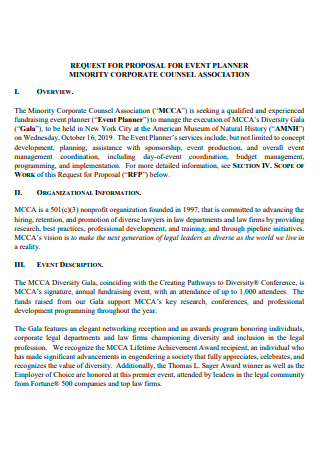
Event Planner Proposal Template
download now -
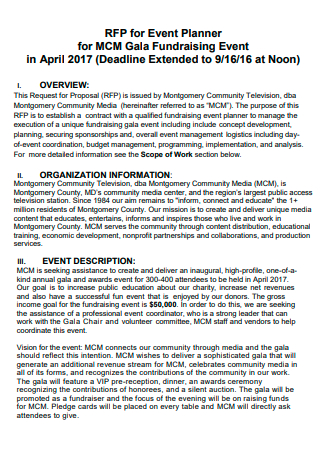
Fundraising Event Planner Proposal
download now -
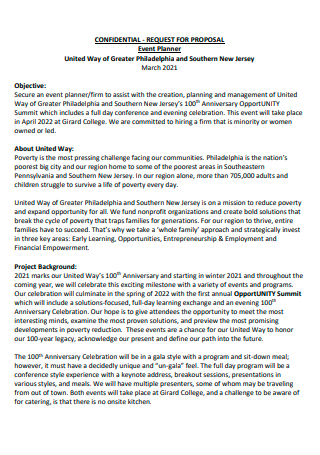
Confidential Event Planner Proposal
download now -
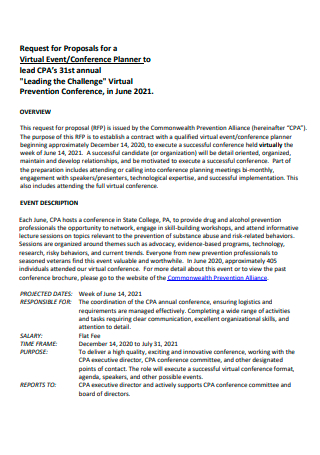
Virtual Event Conference Planner Proposal
download now -
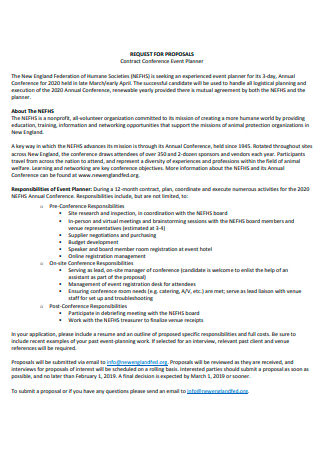
Contract Conference Event Planner Proposal
download now -
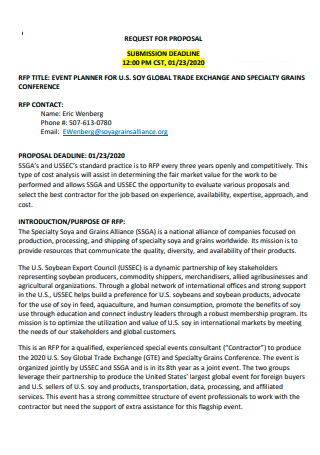
Event Planner Proposal in PDF
download now -
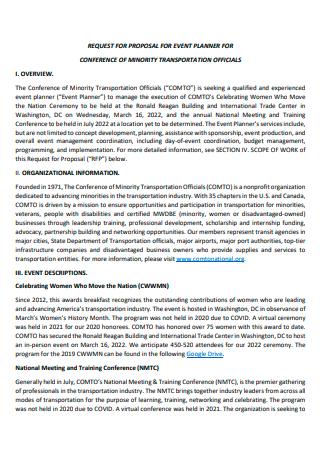
Event Planner Proposal For Conference of Minority Transportation
download now -
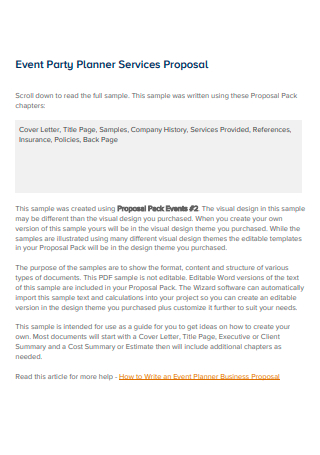
Event Party Planner Services Proposal
download now -
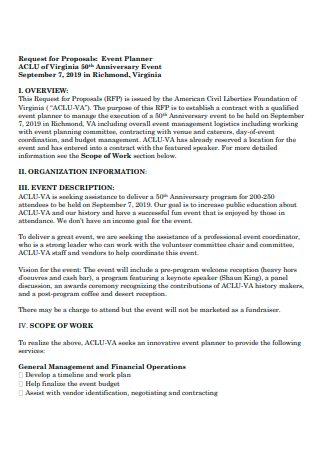
Printable Event Planner Proposal
download now -
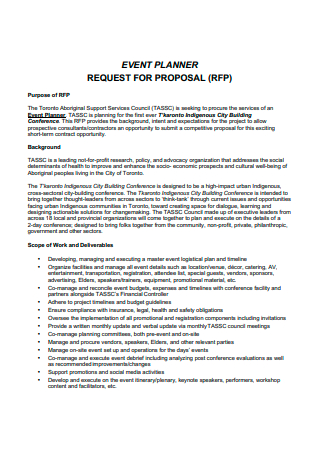
Basic Event Planner Proposal
download now -
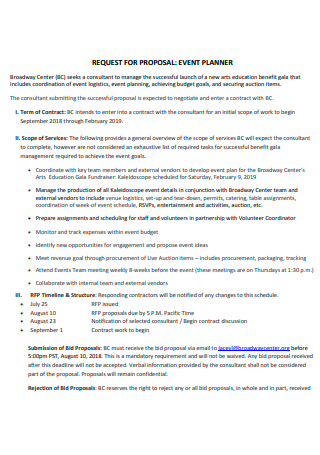
Standard Event Planner Proposal
download now -
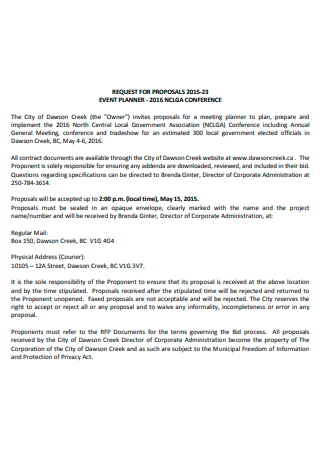
Event Planner Conference Proposal
download now -
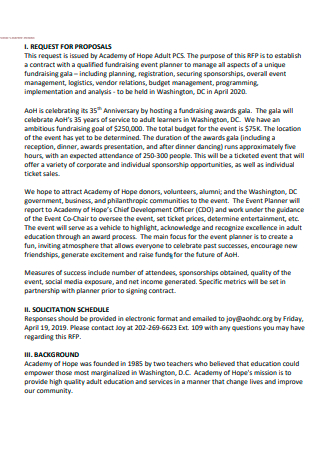
Simple Event Planner Proposal
download now -
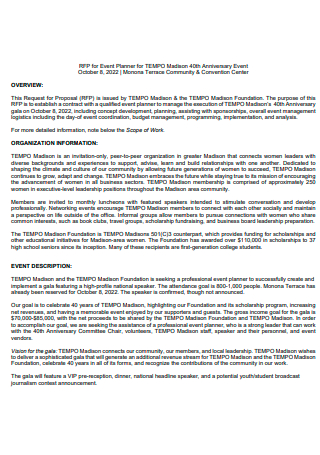
Draft Event Planner Proposal
download now
FREE Event Planner Proposal s to Download
13+ Sample Event Planner Proposal
What Is An Event Planner Proposal?
What Is An Event Planner?
What Are the Important or Must-Have Skills of an Event Planner?
What Are the Types of Events?
How do You Write an Event Planner Proposal?
FAQs
How to keep budgets on track?
How early do I need to start planning for an event?
Can an event planner cope with last minute changes of plan?
A well-thought proposal will help an event planner ahead of almost 93% of their competition. Mastering this skill can really help this kind of business take off. Since planning an event requires a lot of attention to detail, scheduling, organization, and follow up, a planner must be smart in making good decisions and at the same time able to communicate effectively.
What Is An Event Planner Proposal?
An event planning proposal is a written document presented to the client to provide a comprehensive view of the services that will be provided for a certain affair. Just like a resume, it shows the unique skills, experiences, and other qualifications in organizing an event as well as more particular details of the affair itself.
In addition, high-profile weddings, product launches, and so much more events have glamourized the life of event planners. However, event planning is more than just attending fancy parties. Event planning is one of the most stressful jobs in the world and requires specialized skills. The best thing about it is, it is a rewarding career for hyper-organized, hard-working individuals.
Whether it is a million-dollar wedding or a low-budget event at a kid’s party, it all starts with a proposal that describes the event. As an event planner, professionally or as a volunteer gig, you need to be able to sell your skills to the client by way of a well-written, well-researched event proposal. Even if you have done this a hundred times before, the first step is having a conversation with the client to know what he/she hopes to accomplish at the event.
What Is An Event Planner?
An Event Planner coordinates, performs, and manages conferences, meetings and parties. They can either do this by themselves end-to-end, or in conjunction with an events team, events manager, or events coordinator working on-site on the day of the event. Moreover, scouting locations, soliciting bids, managing vendor relationships and client communications, creating and negotiating contracts, and managing budgets are all typical functions in the event planner role. Charged with creating experiences and bringing visions to life, an event planner is adept at juggling many tasks.
Events Planners are busy people. They must be good at prioritizing, organizing, coordinating and must have exceptional communication skills. These professionals can organize events of all kinds, including weddings, banquets, conferences, meetings, parties and funerals.
While you do not really need a degree qualification to become an Events Planner, this may be an advantage to one’s career progression. Consider completing a diploma or degree in event management, hospitality management, public relations or communications.
Some tasks and duties of an event planner include meeting with clients to understand the event’s purpose, communicating progress to the client and obtain buy-in or approval on the details, planning the details of the event, such as the date, location, catering and transportation, inspecting places to ensure they meet the standards and requirements of the event, arranging the products and services needed, such as flowers, food and photography, and reviewing invoices and facilitate payments.
What Are the Important or Must-Have Skills of an Event Planner?
There are a lot of characteristics an event planner must have. Here are some of them:
Communication. A must-have quality of an event planner is the ability to communicate and build a rapport in a short time. Event planners must possess great communication skills and must not be afraid to talk to different executives, event attendees, donors, brand sponsors, and, of course, vendors. Strong interpersonal skills are a must to ensure everybody involved in the event understands their role and things run without a glitch. Planners also need to have equally strong writing skills to convey information properly with confidence, respect, and clarity.
Organizational Skills. There are people who can work in chaos, but as a planner it is essential to rely on process and method if you are part of a team. This means, keeping the team informed, adhering to timelines, budgets, and appointments as well as keeping important documents and information organized.
Networking Savvy. Networking is an important event planning skill since the events industry is based on relationships and is heavily people-driven. It demands a widespread network of vendors, including photographers, lighting and A/V décor, DJs, bands, videographers, etc. This is a network of people you will connect with to make events memorable.
Basic Understanding of Events. Being able to understand how events work is an important event planning skill. As a planner, you should know how to create a floorplan or draft, how to review a contract, and analyze event data. You should also be well-versed in the basics of bands and DJs, A/Vs, florists, décor, etc. It is an artistic job that requires a deep understanding of what is realistic and what is not so, these skills require learning and practice and are acquired over time.
Client-first Approach. Your stakeholder—whether clients or senior management—want something and it is your job to make it happen. To do this, event planners need to have a strong dedication towards serving clients. Even if the task is almost impossible, you need to be polite with your replies as it eases any anxieties your client may have.
Problem-solving. Successful event planners can solve any problem with a cool head. They can quickly make a decision during unexpected challenges while staying calm. They can keep an audience engaged while the keynote speaker is stuck in a traffic jam or eliminate long lines for lunch. This event planning skill keeps event organizers adaptive and creative. The trick lies in continuously checking for holes in your plans and creating backup plans in case things turn wrong.
Negotiation and Budgeting. It is vital for event planners to be able to negotiate a contract with a sponsor or get the best possible deal while booking a venue. Negotiating requires a mix of tact, preparation, and confidence. Budgeting requires forecasting and tracking spend while juggling invoices, proposals, and expenses.
What Are the Types of Events?
From corporate to fundraisers and to festivals, here is the list of the most common types of events:
How do You Write an Event Planner Proposal?
Prospective clients are looking for the right event planner with a vision to assist them in planning a memorable event. It all starts with a well written proposal that describes the event. Here’s how to do it:
Step 1: Summarize the Client’s Needs
If you have any documents of events that you have accomplished, include those in the portfolio section of the proposal. The description is typically where you repeat what the client told you about the event but in a more professional and organized way. This shows that you completely understand what they are looking for. Moreover, any information that you may have obtained about the event during the first meeting is useful. Things like: the entertainment options available, the facilities available at the proposed venue, any catering that is needed, open bar information, seating information if the client was specific about their needs, and many more.
Step 2: Share Your Experiences
A short summary of an event planner is important when writing an event planning proposal. It gives the client an idea of who you are as well as how long you have been in business. Do not forget to include your capabilities, brief information about your experience as an event planner and past client work that you did a good job on. Make sure that you also mention any other relevant experience or training that you have if you do not have too many hands-on events under your belt. To recap, you should include: your bio; any certifications you have (if any); legal business name; contact details (address, phone number, email); years in business; federal employment id (if you have one); business associations and; professional references from past successful events.
Step 3: State the Services Available
If the event is very large with multiple functions such as a wedding, formal presentation, dinner party, it is appropriate to have headings for each function then indicate what you can offer in each function. For instance, “luncheon” or “cocktail party” then describe the duties you will perform in that function to make it memorable such as hiring staff, ordering and serving food, setting up the tables.
Step 4: Create a Budget
Normally, all clients will look at any event planning proposal in hopes of seeing how much it will cost them to hold an event of their choice. After explaining the event in a way that a client can taste, smell, and see how beautiful it will be, make a section to summarize in detail all the costs or each item as well as their purpose in the event. Be sure to make a detailed computation of all the costs. It can also help to provide any perceived discounts such as discounts for early booking or discounts for multiple bookings at the same time. Give yourself an advantage over the competition.
Step 5: Include a Timeline
Help alleviate this concern ahead of time by providing an approximate timeline of your work. How far in advance you will begin working and all milestones leading up to the event. As you discuss this with the client, let them feel like you have everything taken care of and they will not have to stress. A big part clients hire event planners is to know a professional is in control and will make sure everything goes smoothly. Including a timeline can help ease any concerns.
Step 6: Event Policies
At the end of the proposal, write a page about your policies. This helps to manage your client’s expectations properly. The sections of your policy that you can include are a minimum guaranteed headcount; limited time offer on this particular proposal (typically 60 days); cancellation policy (no cancellation within 15 days of event or client only receives 50% refund); rental or damage policy; payment due dates; etc.
FAQs
How to keep budgets on track?
Event planners are meticulous about keeping track of everything they need to spend money on. They do this by constant monitoring and updating spreadsheets, knowing where to prioritize spending and keeping aside a budget to cater for emergency contingencies.
How early do I need to start planning for an event?
While it depends on the size and nature of the event, start by putting plans in place as early as possible. At some point, certain venues may need to be booked in advance, as too with reputable suppliers and vendors. There should be an adequate time to factor in back up plans as well as leaving ample time to negotiate, plan, and make sure everything’s in place for the big day.
Can an event planner cope with last minute changes of plan?
Event planners have an experience in dealing with the unexpected. They build in contingency measures for all events and are constantly creating plans to cope with any situations. They assure the event they are handling is always in the most capable hands.
Every experienced event planner saves time and money. They will be the ones to handle everything—supply reputable suppliers and vendors, negotiate the best rates, discounts, terms and conditions and coordinate all aspects of an event. Having an event planner takes away stress and worry, and gives peace of mind to enjoy the actual event.
In addition, the very first thing to decide on is the kind of function you want to hold. In recent times, virtual and hybrid events have become largely popular, and many types of live events can be taken online. However, regardless of your choice of events, venue, budget, sponsorship, and accessibility are taken care of by event creators. So, it is necessary that all parties are aware of their obligations and responsibilities. This goes a long way towards maintaining professionalism, enjoying healthy relationships with loyal vendors and suppliers, and ensuring clients are always delighted with the service to them.
